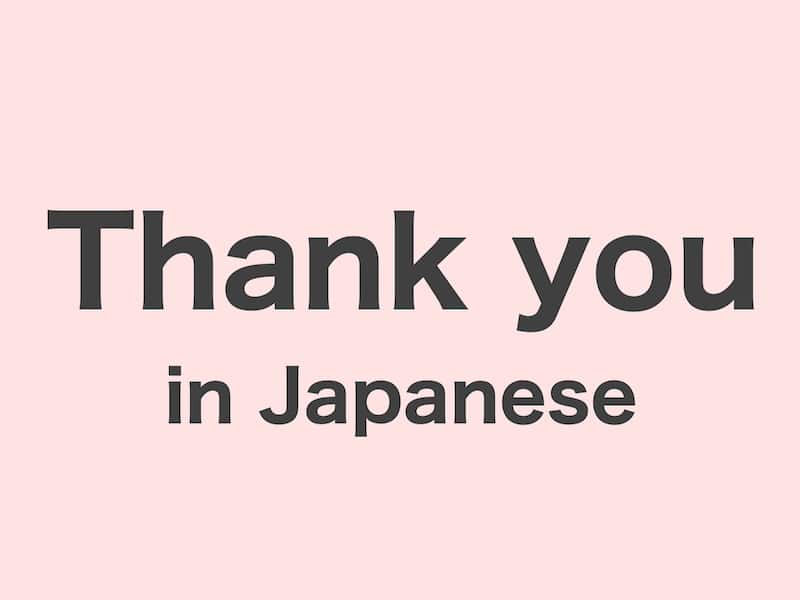Gratitude in Japanese culture is an intricate tapestry of respect and appreciation. Saying ‘Thank You’ isn’t just about words; it’s a reflection of politeness and mindfulness.
In this comprehensive guide, we’ll explore the diverse ways to convey “Thank You” in Japanese. From the formal “Arigatou gozaimasu” to the casual “Arigatou,” we’ll delve into the nuances and contexts, allowing you to master the art of expressing gratitude in Japanese with finesse. Join us on this journey to enrich your cultural understanding and elevate your appreciation with the beauty of Japanese expressions for gratitude.
Here are various ways to express “Thank You” in Japanese, ranging from formal to casual expressions:
心より感謝いたします (Kokoro yori kansha itashimasu)
“I sincerely appreciate it from the bottom of my heart.”
This phrase is a formal and sincere way to express deep gratitude from the heart. It’s often used in formal settings, business situations, or when showing profound appreciation.
厚く御礼申し上げます (Atsuku orei moushiagemasu)
“I express my heartfelt gratitude.”
This is a formal expression conveying heartfelt thanks. The word “厚く (atsuku)” adds emphasis, implying a sense of deep appreciation and respect.
心より感謝いたします。 (Kokoro yori kansha itashimasu)
“I sincerely appreciate it.”
誠にありがとうございます (Makoto ni arigatou gozaimasu)
“Thank you sincerely.”
It’s a polite and formal expression used in various contexts, conveying sincere thanks. “誠に (Makoto ni)” adds an extra layer of sincerity to the gratitude expressed.
ありがとうございます (Arigatou gozaimasu)
“Thank you.”
This is a standard, polite way to say “Thank you” in Japanese. It’s appropriate in most situations, both formal and informal, showing gratitude with respect.
ありがとう (Arigatou)
“Thanks.”
A more casual and shorter version of “Arigatou gozaimasu,” still conveying gratitude but used in everyday conversations among friends or in relaxed settings.
あざっす (Azassu)
Casual way of saying “Thanks.”
These are very casual expressions of thanks, often used among close friends or in informal situations. They are shortened and more colloquial versions of “Arigatou.”
あざ (Aza)
Even more casual, similar to “Thanks.”
サンキュー (Sankyuu):
This is borrowed from English “Thank you,” commonly used in informal contexts, especially among younger generations or in more casual settings like with friends.
おおきに (Ookini)
Specific to the Kansai region of Japan, it’s a warm and friendly expression of gratitude. It’s often used casually but carries a deep sense of appreciation.
For written communication:
In emails:
ご厚誼(こうぎ)を賜り、御礼申し上げます
Romaji: Kougi o tamawari, orei moushiagemasu.
Translation: “Thank you for your kindness, I express my gratitude.”
長年のご愛顧に感謝申し上げます
Romaji: Naganen no goaikono ni kansha moushiagemasu.
Translation: “We express our gratitude for your long-term patronage.”
いつもお引き立ていただき、誠にありがとうございます
Romaji: Itsumo o-hikitate itadaki, makoto ni arigatou gozaimasu.
Translation: “Thank you sincerely for your continued support.
格別のご厚情を賜り、衷心より感謝申し上げます
Romaji: Kakubetsu no go-kojou wo tamawari, chuushin yori kansha moushiagemasu.
Translation: “We sincerely appreciate your exceptional kindness and express our heartfelt gratitude.”
These expressions vary in formality and are used according to the relationship with the recipient and the context of the situation.



コメント